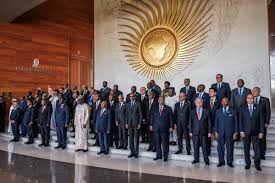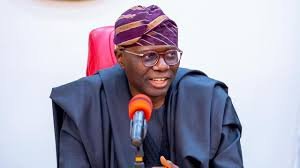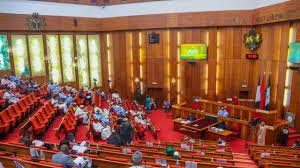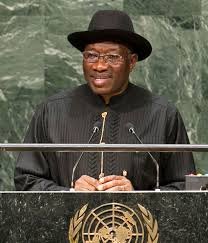Can the shape of the future be deduced from the happenings shaping the present? All of human history points to the fact that this is the case. For instance in the course of the raging ideological and political battles within the Russian Revolutionary movement prior to the onset and victory of the 1917 Revolution – The Period from February to October representing the opening and closing moments of the revolution; a period of intense revolutionary crisis and struggle, a period characterised by a dual power situation, and a period culminating in the Victory of the Workers Revolution marked by the overthrow of the Transitional Government and the passing of All Powers To The Soviets; during preceding period, Trotsky, the second most preeminent leader of the 1917 Revolution, had made an analysis of a type of party organising that could lead to the emergence of a personal dictatorship. He had said that an overly or near absolutely centralised organisation risked a situation where the Central Committee would substitute itself for the whole party, the Politburo of the Central Committee would substitute itself for the Central Committee, while the General Secretary of the Politburo would substitute itself for the Politburo, and thus in essence, substitute itself for the party and become the party.
Given that the intense revolutionary struggle and the intense revolutionary debate that was taking place in the context of the existence of feudal Russia, and given the nature of this feudalism, characterised by absolute monarchy, where the absolute monarch was the state; one can understand not only the circumstances under which this prediction was made, as well as its prescient nature, given that the prediction did come to pass under Stalin. However, when the analysis and critique was initially made, it had been countered by Lenin – who went on to become the most preeminent leader of the 1917 Russian Revolution; with a response that qualified the necessity for this type of organisational structure with very fundamental ifs, through the existence and guarantee of unfettered inner party democracy and debates; the guarantee of the right to establish platforms within the party for the purpose on carrying on debates around disputed and contending programs and courses of action; etc.
Nevertheless, once the internal democratic processes of the party had functioned, and decisions had been taken by democratic majorities; then all party members, and the platforms established during the debate were duty bound to implement the decisions. Lenin had explained that a Revolutionary party or organisation needed the compactness and discipline that will enable it not only to take decisions, but to also implement those decisions in the most effective and efficient manner. Nonetheless, in order for such a party not to become a rigid structure and handy tool in the hands of a dictator, it was necessary for the mechanism of inner party democracy, to be put in place as a system of checks and balance to ensure a disciplined, functioning and democratic party.
This system of inner party democracy, within such a disciplined revolutionary party was called Democratic Centralism; That is democratised centralised organisation, or put differently, a centralised system run on the basis of a democratic process. History went on to show and demonstrate just how correct both Lenin’s and Trotsky’s formulations were in practice. History proved that the victory of a revolution by oppressed and exploited classes against their ruling class would require just such a party. And this happened under the leadership of Lenin and Trotsky.
But history also went on to demonstrate that once this inner party mechanisms for democratic decision making were tampered with, undermined, and essentially removed; and in the absence of the system for fundamental checks and balance, Trotsky’s prognosis did come true under Stalin. It is necessary to explain how this transition took place. It took place in the context of the Civil war between the victorious revolution and the defeated ruling class and its allies, including the armies of foreign powers who tried to intervene to save the ruling class and emasculate the victorious revolution.
But even in this context, the Bolshevik party still retained its internal character of guaranteeing inner party democracy and organising; just as the Soviet government over which it presided still guaranteed Soviet Democracy for all the various revolutionary parties and factions who supported and promoted socialism, and who supported and promoted the revolution and the broad outlines of the revolutionary transformation being undertaken, even if they disagreed with specifics.
The transition from a democratic party to a monolithic happened when the context of civil war was compounded by the context of heightened and intensifying disputes within and between the various revolutionary parties and factions, leading to the assassination attempt on the life of Lenin, and some attempts to forcefully, with the use of arms, to overthrow the Bolshevik led Soviet Government. In the context, the governing Bolshevik party temporarily banned opposition parties, and eventually also extended this temporary ban to contending internal party platforms.
It was the conversion of this ad-hoc necessity into a permanent way of governing that led to the establishment of the conditions that enabled the fulfilment of the predictions earlier made by Trotsky. Why is all of this history necessary now? Because we are in a period when we are debating and discoursing the urgency of the revolution versus the imminence of the revolution.
Whether we are in the camp that agrees that a revolution has become an urgent necessity; or in the camp that contends that a revolution is actually imminent now; these two broad camps accept the necessity of a revolution and are broadly speaking revolutionary camps.
But it is the current nature of the revolutionary debate and contentions within the revolutionary camps; not only in their intensity – this is to be expected, but more significantly in its vehemence, the vehemence with witch this disagreement is carried on by some; that makes it urgent to revisit this history and to try to draw appropriate lessons.
We have seen that not only did the revolutionary party become an instrument in the hands of a Maximum ruler, accountable to no one; but the revolution under this maximum ruler went on to consume its own children in the course of an internal purge of the revolution.
Every successful revolution goes on to purge the state and the system of vestiges of the past; but a situation where the overwhelming majority of the leadership from the lower leadership cadre up to the topmost hierarchy of the revolution in the party and state structures, became subjected to mass trials, convictions, imprisonments and executions as counterrevolutionaries is to the least not only abhorrent but also tragically undermining of the survival of the revolution itself.
Because by the logic of this purge, the Revolution of 1917 was actually made and led by Counterrevolutionaries and counterrevolutionary forces and elements!
We may assume that this is in the past, but can the past repeat itself? Can a successful Nigerian Revolution repeat history? Or take a course of action that is historically similar?
Hence the utmost necessity for this question to be raised; is it likely a manner of conducting political disagreements with such a level of intense vehemence in the present situation, eventually lead to a situation where this becomes concretised into a course of action to carry out a [brutal] purge of the revolutionary movement after the revolutionary victory, or even before this victory, as the revolutionary crisis deepens, and the revolutionary debates, discourses and disagreements intensifies?
Given not only the introduction and perpetuation of this vehement character into the ongoing disagreements, but also the nature and the character of the types of organisations that revolutionaries not only belong to, but also lead; I do have my worries.
So, Can the shape of the future be deduced from the happenings shaping the present? All of human history points to the fact that this is the case. Can a determination to carry on political disagreements with intense vitriolic vehemence eventually crystalise into a determination to eliminate those in political disagreement with one in some variant of revolutionary purge, even if it is a disagreement within the (same) broad revolutionary camp – as defined earlier on?





















